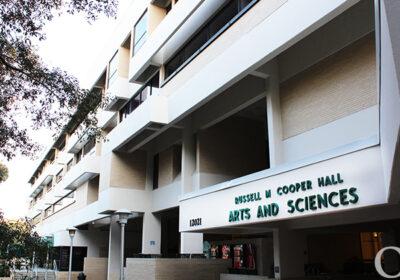Low voter turnout for SG elections mirror national trends

For sophomore biomedical science major Kayla Milcette, voting for Student Government (SG) is an opportunity to have her voice heard.
“I voted because I felt like it’s important to have a group of students who share the same values as you lead,” Milcette said.
USF SG elections occur twice a year – in October for midterm elections and February for general elections – to give students the opportunity to elect their peers that will represent their voice at the university.
“It gives students a voice who don’t want to speak up. They have someone who resembles them speak up for them,” Milcette said.
While electing representatives gives the student body a voice in campus events, services and resources, USF only saw about a 9% voter turnout of 44,682 eligible voters last spring, according to university election polls.
SG Advising, Training and Operations Director Gary Manka said low voter turnout reflects low turnout among young adults on a national scale.
“Voter turnout, through the past couple of years, has been down. We are a microcosm of a greater macrocosm of the United States,” he said. “Students don’t like to vote for some reason…It’s been a slow descent.”
Last year, Florida saw a 54% voter turnout for the general election, according to the Florida Division of Elections.
An estimate by the Center for Information and Research on Civic Learning and Engagement (CIRCLE) showed roughly 22% of eligible 18-29-year-olds voted in the Florida 2022 midterm elections.
Supervisor of Elections Dora Rodriguez said she thinks a decline in national voter turnout is related to the university’s turnout.
“I think it’s the same idea that as people we have representatives and we know that they’re there and we get upset at changes that happen or excited at changes that happen,” Rodriguez said. “I think that there is a big disconnect between ‘Okay, I’m choosing my representative’ and ‘I’m passionate about student government.’”
To increase voter turnout over the past few years, SG promoted voting information on its social media and around campus leading up to the events.
Near elections, it hosts informational meetings to inform students about the different roles each position is responsible for and how these impact the student body, according to Rodriguez.
Milcette said she knew about the elections from representatives standing outside of the Marshall Student Center (MSC) encouraging people to vote.
On election days, SG has giveaways at its in-person voting booths. Rodriguez said she believed these incentives did attract more voters. However, when the booths ran out of giveaways, students would leave without casting their votes just because they wouldn’t not get a promotional item.
While nearly 4,000 students voted in last year’s midterm election, many students, like sophomore marine biology major Ashlie Lamphere, did not vote because they were not interested.
However, she said seeing SG get more involved in the school might increase her interest and encourage her to vote. She suggested SG engage more with students through events to show what the organization does for USF.
Junior health sciences major Shadai Frederick said there was nothing USF’s SG could have done to interest her because she doesn’t vote for national or local government officials either.
Even if SG did more to advertise the impact it has on students, Frederick said she still would not be interested in voting.
“I saw it everywhere, but it just didn’t interest me,” Frederick said. “I think voting overall doesn’t interest me…it’s because I feel like my vote doesn’t matter because it’s one of many.”
However, students such as senior psychology major Kaniz Angel, disagree that their voice is lost in a large election.
“Just having one other person with the same viewpoint as you voting means a lot because you can make a huge difference,” Angel said.
For Angel, voting in the SG elections is an opportunity to exercise her right and responsibility to vote. Having this right as a citizen is important to her.
“As a woman, we haven’t always had the right to vote and just the small thing as voting in school means a lot,” Angel said.
Manka said he believes a decline in voter turnout is due in part to students focusing more on jobs, classes and life outside of and after college. However, he said building the habit of voting for SG while in college establishes a foundation for fulfilling their civic duty on a national scale.
Students should also vote because it has a direct impact on how fees in their tuition are allocated, according to Manka. Students pay a $7 activity and service fee each semester, which grants around $14-18 million to SG to allocate to student organizations and the Student Life offices on the students’ behalf.
“The bottom line is, the one way to keep the student government in check is to vote. The people in there that have your vested interest … just like any other election,” Manka said.
Rodriguez said she understands that voting requires time and research and that it can be pushed to the side with students’ busy schedules.
Voting for SG is the opportunity for students to elect those who will represent the student body to the university, Angel said.
“Just like U.S. elections, you’re giving someone else your voice so they can represent you,” Angel said. “So, this is the same thing, but just more compact.”







